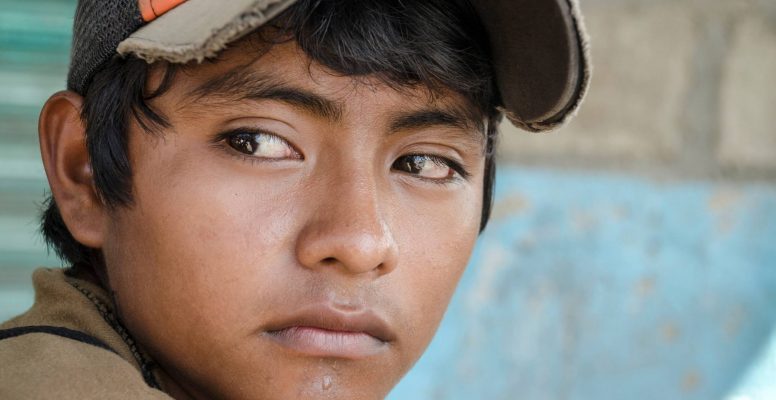
Supporting Adolescent Immigrants
Written By: Ruby Ortiz, Clinical Trainee at ACS, On-Campus Counseling Program
a CHILD’S EXPERIENCEwhen immigrating to the United States and adapting to a new reality is often one that is overlooked. However, it is important to know that from 1989 to 2001, the U.S. accepted approximately 400,000 refugee children (Xu, 2007). We should recognize that these young “unaccompanied minors” who have traveled to seek refuge in the United States are here and are a significant part of our communities. It is imperative that we all develop a level of understanding of the issues that surround these young members of our society.
Refugee children often experience substantial amount of trauma in their home countries, including being exposed to violence, lack of education, and genocide. Studies show that, children who have been exposed to violence tend to experience significant levels of depression (McCloskey et al., 1995). When relocating, it is very common for families to separate and go for extended periods of time without seeing each other. Therefore, these children also experience many losses at a very young age. Many times, these children leave behind their home, loved ones, and everything familiar to them, including a part of their identity.
Without fully processing what is happening, once they arrive in the United States, they often feel a strong pressure to adapt and thrive in this new environment. They have to make new friends, learn a new language, adjust to a new academic system, and overall be okay with this change in their lives. Often, children going through such a drastic change can’t always articulate into words what they are experiencing. Not only are they coping with their own emotions, but they are also aware and carrying the worrisome looks that may surround them on a daily basis. The fear of losing their loved ones again and the sadness of missing the one’s they already lost is constant. Studies have shown that, refugee children often lack a healthy family support system due to a majority of their significant others being missing in their lives or because their caretakers might also be dealing with economic stress, depression, and social psychological distress that has resulted from adjusting to a new country (Xu, 2007).
With all the challenges that these children face, a common question that we may ask ourselves is, how can we best support these young newcomers? It is normal to want to know and be a part of “fixing the problem”. In addition, one should note that mental health may be a taboo topic and it is still very stigmatized in many cultures.
The most basic thing that anyone can do is to acknowledge the challenges that these young people have endured and continue to face. Often times instead of trying to “fix” anything, one should just listen and provide a nonjudgmental space if one has the opportunity to do so. One cannot erase what these children have experienced, but we can provide some level of our understanding of their struggle. One cannot pretend to know what each and every immigrant child has gone through. We cannot know, they are the only one’s walking in their own shoes. At the same time, we should also not avoid or attempt to overlook these children’s trauma but, accept them as they are. Instead of othering, perhaps we could just listen and allow them to be okay with every emotion they might be experiencing.
These young individuals are and will continue to be a part of our communities, and this alone should encourage us to widen our perspective, not only for them, but for our community as a whole.
___________________________
References
Qingwen Xu. (2007). A Child-Centered Refugee Resettlement Program in the United States. Journal of Immigrant & Refugee Studies, 5(3), 37–59. https://doi.org/10.1300/J500v05n03_03
McCloskey, L. A., Fernández-Esquer, M. E., Southwick, K., & Locke, C. (1995). The Psychological Effects of Political and Domestic Violence on Central American and Mexican Immigrant Mothers and Children. Journal of Community Psychology, 23(2), 95–116. https://doi.org/10.1002/1520-6629(199504)23:2<95::AID-JCOP2290230202>3.0.CO;2-A
